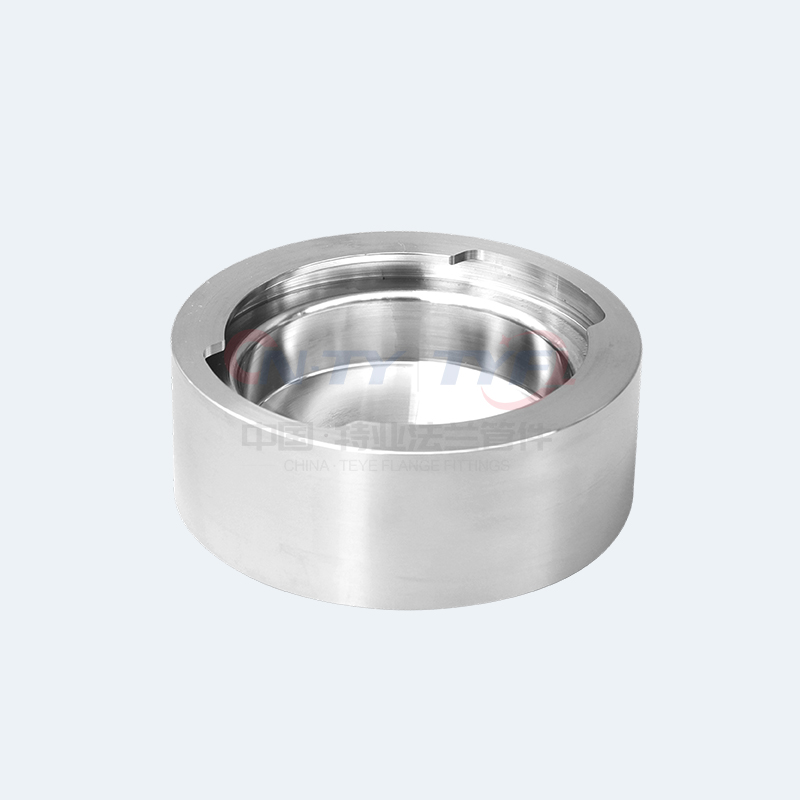Company employees are aware that the integrity of flange connections is important for transporting fluid pipeline systems. Especially in chemical pipelines or water supply pipelines, leakage from flange connections can cause serious environmental and economic impacts, and may even lead to serious safety risks. So when making flange protection devices, be particularly careful; Especially when leaked materials are exposed to corrosive environments or polluted industrial atmospheres, the corrosion rate becomes very fast. In addition, due to the complex geometric shape of flange connections, crevice corrosion between two flange surfaces and galvanic corrosion between different metals are likely to seriously damage the pipeline system. Below, we will introduce some clever solutions to solve this problem.
In order to meet stringent production requirements and reduce sudden shutdowns caused by leaks, effective monitoring and inspection are crucial. Technicians usually pay more attention to the issue of leakage between flange surfaces, while neglecting the protection of fasteners and the outside of pipelines, which can have extremely serious consequences in harsh external environments. Insufficient external protection can accelerate and increase damage to flanges and fasteners, leading to acceleration and deterioration of the entire sealing system, potentially damaging the structural integrity of the system and leading to sealing failure.
Only when the entire system is shut down can the flange sealing surface be inspected. The inspection procedure should be as simple as possible, and external corrosion should be eliminated first. If the machine cannot be stopped, it can only be detected through ultrasonic technology. In cases where external corrosion cannot be controlled, the process will be more complex and accurate test results will not be obtained. Therefore, in order to monitor the entire system and provide effective and executable quality control and maintenance, external corrosion protection of flanges and fasteners is important. The ideal solution should consider superior corrosion resistance and simple construction methods, and should be applied to flanges of various sizes and shapes. The current popular solution package in the market requires the initiation of bolt maintenance coating solutions during the maintenance process.
Maintenance paint is a hard film that can be directly bonded to the substrate, typically an epoxy resin or polyurethane coating. The flange has many edges and edges, and traditional coating systems are difficult to effectively cover the edges through the thinning effect of the edges. Thicker coatings can solve edge protection issues, but do not require sealing of fasteners and subsequent maintenance for maintenance. In addition, the coating was damaged during bolt operation and needs to be repainted after repair.
Mechanical solutions
The gap between the flange and its surface is mainly sealed by protective covers and clips, usually made of stainless steel or plastic with rubber sealing strips. This type of protection is not very flexible and requires storage of covers or clips that perfectly match various sizes of flanges.
Tape or semi solid anti-corrosion tape solution
Wrapped tape (such as gasoline tape, wax or elastic polymer packaging) is protected by wrapping it around the surface of the substrate. Due to the excellent waterproof properties of semi-solid polymers, this protection can provide reliable anti-corrosion protection.
However, if the shape of the flange is complex, this material is not only time-consuming but also difficult to construct. When it is necessary to disassemble bolts, the material is relatively soft and easy to cut, but it is difficult to reseal and restore the original protection after disassembly and assembly, and generally requires reconstruction.
Hot melt plastic solution Hot melt plastic is basically a high-temperature heated waxy fusible polymer that is sprayed onto the surface of the substrate through professional hot melt equipment. The advantage of this protection is that it can be remelted and reused, thereby saving costs. However, this method still requires thermal engineering, professional equipment, and construction services. Although it can be reused, it is not easy to open and seal during maintenance.
Polymer sealing bag solution
The sealing bag completely surrounds the flange and is composed of low permeability polymers, corrosion inhibitor vapors, and desiccants. It is easy to install, but the two ends of the bag are only sealed with tape, rather than a durable and effective mechanical combination. There is a large area of steam inside the bag, which can easily collect a large amount of water, and the corrosion inhibitor will be consumed for a period of time.
Although the above plan can play a certain role in anti-corrosion protection, there are still some defects in construction, inspection, and maintenance. It is necessary to explore and develop effective solutions to provide long-term and comprehensive protection for flanges.

